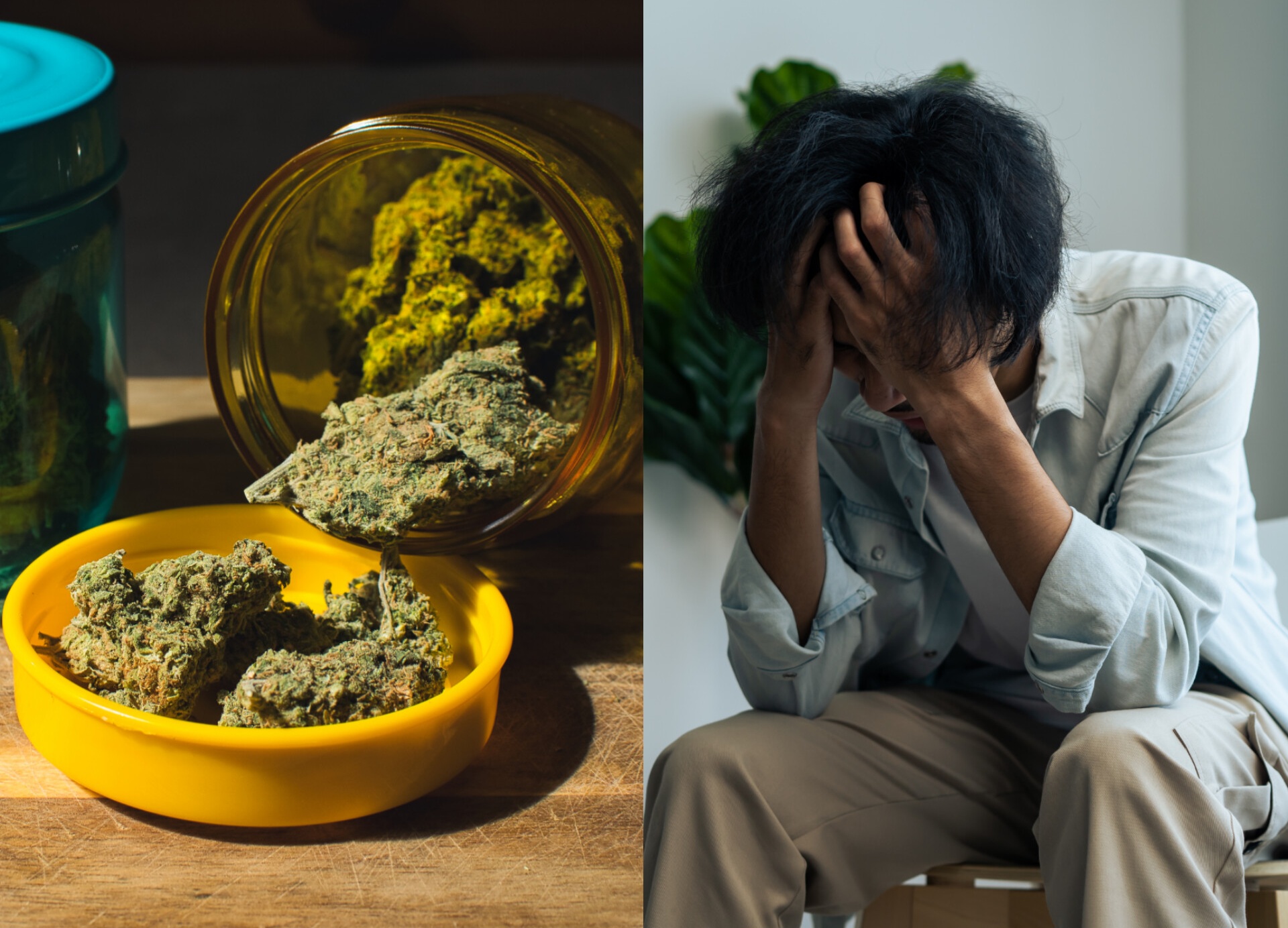Hey there! Let’s dive into the world of cannabis and how it can play a role in anxiety. If you’ve ever wondered how a plant can both calm you down and sometimes make you feel like you’re on the edge of a panic attack, you’re not alone. Cannabis is a complex plant with a variety of compounds that can have different effects on our brains and bodies. Let’s break it down in a way that’s easy to understand.
The Basics: What’s in Cannabis?
First off, cannabis is made up of over 100 different compounds called cannabinoids. The two most well-known cannabinoids are THC (tetrahydrocannabinol) and CBD (cannabidiol). These two are like the yin and yang of cannabis—they have very different effects on your mind and body.
THC: The High Maker
THC is the main psychoactive component in cannabis. It’s the stuff that gets you “high.” When you consume THC, it binds to receptors in your brain called CB1 receptors. This can lead to a feeling of euphoria, relaxation, and even altered perception of time and space. Sounds great, right? But there’s a flip side. For some people, especially those prone to anxiety, THC can increase feelings of paranoia and anxiety. It’s like being on a roller coaster—some love the thrill, while others just want to get off.
CBD: The Calming Companion
On the other hand, CBD is non-psychoactive, meaning it won’t get you high. Instead, CBD is known for its calming and anti-inflammatory properties. It interacts with different receptors in the brain and can counteract some of the effects of THC. For many, CBD can help reduce anxiety and promote a sense of calm without the highs and lows associated with THC.
How Cannabis Can Help with Anxiety
So, why do some people turn to cannabis for anxiety relief? Well, it can be quite effective for certain individuals. Here’s how:
1. Relaxation and Stress Relief
For those who struggle with chronic stress and anxiety, a little THC can go a long way in helping to unwind and relax. It can lower cortisol levels (the stress hormone) and promote a sense of peace. This is why some people find that a small dose of THC before bed can help them sleep better and wake up feeling refreshed.
2. Mood Regulation
Cannabis can also affect serotonin levels in the brain. Serotonin is a neurotransmitter that plays a key role in mood regulation. Some studies suggest that cannabis, particularly strains high in CBD, can help balance serotonin levels and improve mood, which can be beneficial for those dealing with anxiety and depression.
3. Pain and Inflammation Reduction
Chronic pain and inflammation can contribute to anxiety. Cannabis, especially CBD, is known for its pain-relieving and anti-inflammatory properties. By reducing pain and inflammation, cannabis can indirectly help reduce anxiety.
The Dark Side: When Cannabis Makes Anxiety Worse
While cannabis can be a great tool for managing anxiety, it’s not a one-size-fits-all solution. For some people, especially those sensitive to THC, cannabis can actually make anxiety worse. Here’s why:
1. Increased Heart Rate
THC can cause an increase in heart rate, which can be unsettling for someone with anxiety. This heightened physiological response can mimic the symptoms of a panic attack, making you feel more anxious.
2. Paranoia and Fear
High doses of THC can lead to paranoia and irrational fear. This is because THC can alter your perception of reality and make you more aware of your surroundings in a way that can be overwhelming.
3. Dependency and Tolerance
Regular use of cannabis can lead to dependency and increased tolerance, meaning you need more of the substance to achieve the same effects. This can create a cycle of increased use and potentially increased anxiety when not using the substance.
Finding the Right Balance
If you’re considering using cannabis to manage anxiety, it’s important to find the right balance. Here are some tips to help you navigate this journey:
1. Start Low and Go Slow
Begin with a low dose of THC and gradually increase it until you find a comfortable level. This can help you avoid the negative side effects of too much THC.
2. Consider High-CBD Strains
Look for cannabis strains that are high in CBD and low in THC. These strains can provide the calming effects of CBD without the intense highs of THC.
3. Know Your Strains
Different cannabis strains can have different effects. Sativa strains are often more uplifting and energizing, while Indica strains are typically more relaxing and sedative. Hybrid strains can offer a mix of both. Knowing the effects of different strains can help you choose one that’s right for your needs.
4. Mind Your Setting
The environment in which you consume cannabis can have a big impact on your experience. Try to use cannabis in a comfortable, familiar setting where you feel safe and relaxed.
5. Listen to Your Body
Pay attention to how your body responds to different doses and strains of cannabis. Everyone’s endocannabinoid system is unique, so what works for one person might not work for another. Trust your own experience and adjust accordingly.
Alternatives to Cannabis for Anxiety
While cannabis can be helpful for some, it’s not the only option for managing anxiety. Here are a few alternatives to consider:
1. Therapy
Cognitive-behavioral therapy (CBT) and other forms of therapy can be highly effective for treating anxiety. A therapist can help you develop coping strategies and address the underlying causes of your anxiety.
2. Exercise
Regular physical activity can help reduce anxiety by releasing endorphins and promoting a sense of well-being. Activities like yoga, running, and swimming can be particularly beneficial.
3. Mindfulness and Meditation
Practices like mindfulness and meditation can help you stay grounded and present, reducing the impact of anxiety. These practices can teach you how to manage your thoughts and emotions in a healthy way.
4. Medication
For some, prescription medications like SSRIs (selective serotonin reuptake inhibitors) or benzodiazepines may be necessary to manage anxiety. It’s important to work with a healthcare provider to find the right medication for you.
The Bottom Line
Cannabis can be a double-edged sword when it comes to anxiety. For some, it can provide much-needed relief and relaxation. For others, it can exacerbate symptoms and lead to increased anxiety. The key is to find what works best for you, whether that’s cannabis, another form of treatment, or a combination of approaches.
Remember, everyone’s experience with anxiety and cannabis is unique. It’s important to approach cannabis use with an open mind and a willingness to experiment to find the right balance for your individual needs. And as always, consult with a healthcare professional before making any changes to your treatment plan. Happy exploring, and may you find the peace and calm you deserve!

